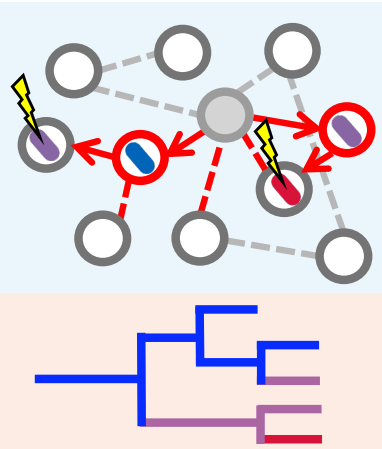Abstract
Infectious disease dynamics are driven by the complex interplay of epidemiological, ecological, and evolutionary processes. Accurately modeling these interactions is crucial for understanding pathogen spread and informing public health strategies. Traditional analytical methods are often insufficient to address these complexities, necessitating more advanced simulation tools. However, existing simulators fail to capture the dynamic interplay between these processes, resulting in oversimplified models that do not fully reflect the real-world complexities in which the pathogen’s genetic evolution dynamically influences disease transmission. We introduce the epidemiological-ecological-evolutionary simulator (e3SIM), an open-source framework that concurrently models the transmission dynamics and molecular evolution of pathogens within a host population while integrating environmental factors. Using an agent-based, discrete-time, forward-in-time approach, e3SIM incorporates compartmental models, host-population contact networks, population genetics, and eco-evolutionary models for pathogens. This integration allows for realistic simulations of disease spread and pathogen evolution. Key features include a modular and scalable design, flexibility in modeling various epidemiological and population-genetic complexities, incorporation of time-varying environmental factors, and a user-friendly graphical interface. We demonstrate e3SIM’s capabilities through simulations of realistic outbreak scenarios with SARS-CoV-2 and Mycobacterium tuberculosis, illustrating its flexibility and robustness for studying the genomic epidemiology of diverse pathogen types.
